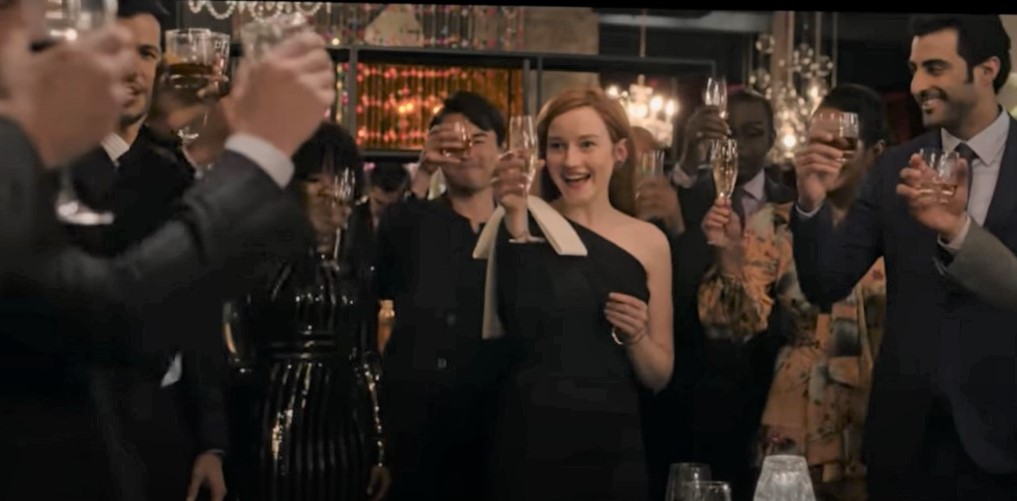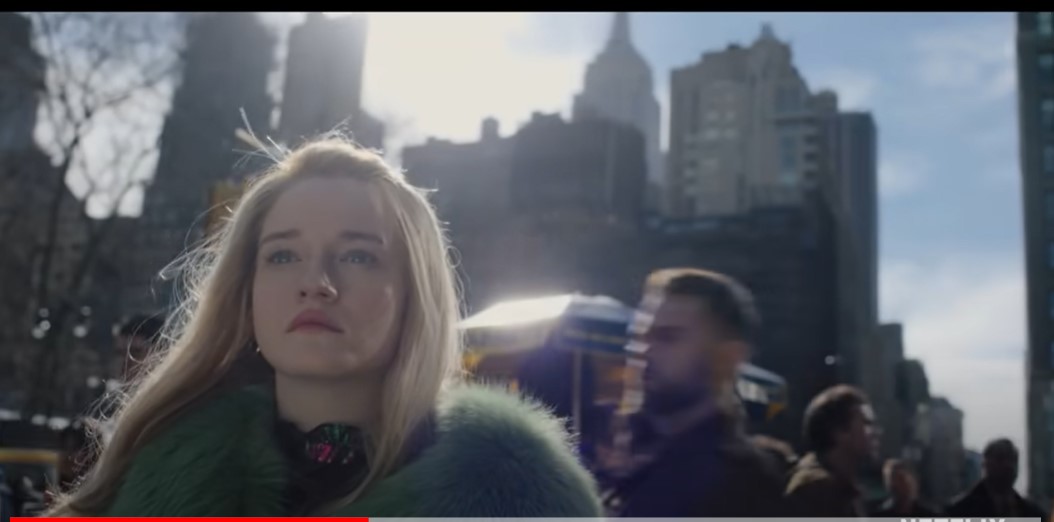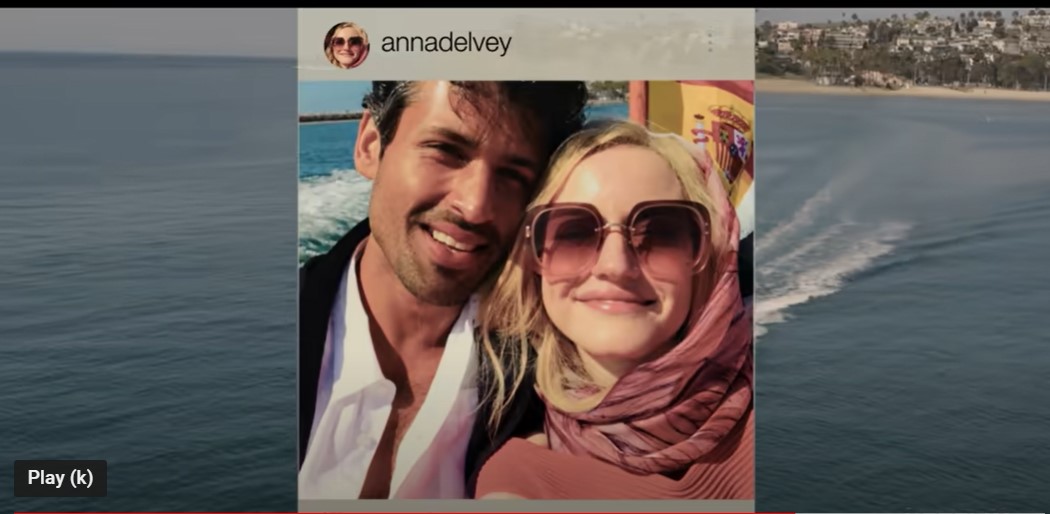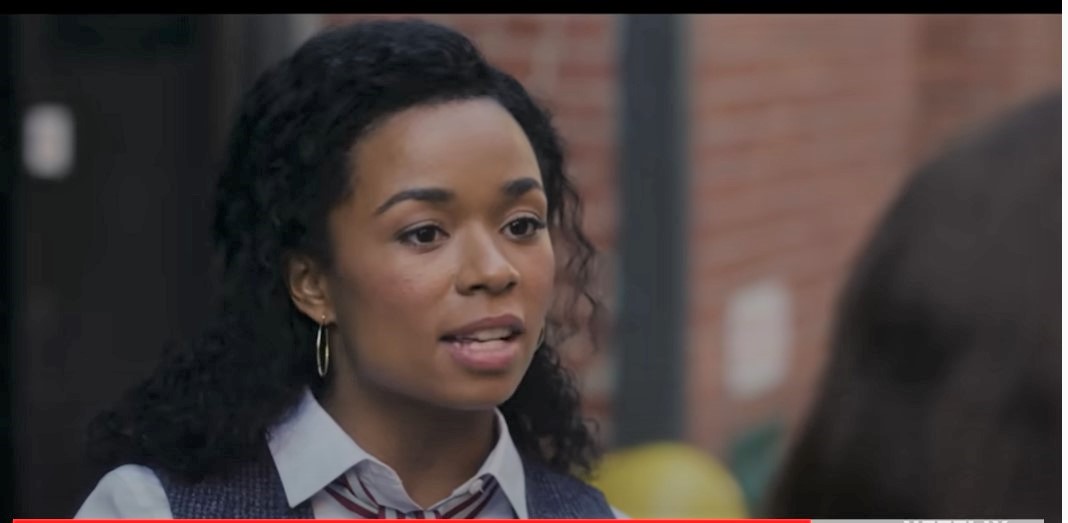Who was she, Anna Delvey or Anna Sorokin? Was she a German trust-fund baby whose daddy was worth 60 million dollars or poor and on the make? In her mind Anna was a genius, while the rest of us “are all so basic!”. The investigation and subsequent trial that was held in 2019 revealed that she was a con artist who managed to fool New York high society into believing she was one of them, one of the elite who made and broke deals, who led when others followed.

This new limited series on Netflix from Shonda Rhimes examines the scandal that captivated New York and the world a few years ago and laid bare the mechanisms that make New York tick in the 21st century. Rhimes was inspired by an article written in New York Magazine in 2018 by Jessica Pressler. The disclaimer at the start of each episode states that, “This whole story is completely true. Except for all the parts that are totally made up.”
This is not only a clever move to avoid any legal issues that might arise, but on an artistic level it also reflects the nature of the subject itself: if there is misrepresentation of the truth, whose lies are they? Anna Sorokin/Delvey was a master at creating ambiguity and lies. No doubt, she even believed some—indeed, most–herself. The hallmark of a great swindler is belief in the self-concocted story because before you can convince someone else, you need to convince yourself. Yet isn’t this just another version of the much-quoted inspirational slogan (and repeated 3 times in “Inventing Anna”) “fake it till you make it”? And how many young people thrown into the deep end of the New York pool of aspirants to wealth and celebrity adopt it as their mantra?

During the trial the evidence showed that “she stole a private jet and bilked banks, hotels and associates out of about $200,000. She did all of this while attempting to secure a $25 million loan from a hedge fund to create an exclusive arts club.”
Whether in New York or London or Paris, the world is now one, connected by social media that bares all secrets and allows narcissists like Anna to create their own publicity campaigns—true or fake doesn’t matter. In our postmodern world appearance is more real than reality. As Jean Baudrillard, the guru of postmodernism argued, “The new world of ‘hyperreality’ – media simulations, for example, Disneyland and amusement parks, malls and consumer fantasy lands – is more real than the ‘real’, and controls how we think and behave.”
Ambition can be as weighty as endowing a hospital or as vapid as being a celebrity just for being a celebrity (hint: the Kardashians). While modern societies were organized around production of goods, postmodern society is organized around ‘simulation’; that is, the images and signs of those goods and what they represent. In these terms, Anna Delvey was a simulation of Anna Sorokin’s aspirations.

In an ironic twist, once the investigation got under way it was significantly advanced by evidence gleaned from Anna’s own social media accounts, her Instagram photos that placed her unequivocally with certain people in specific places at a determined time. Sometimes, it seems, the ‘real world’ cannot be denied in favor of the pretend world.
In “Inventing Anna” music brings tension to scenes and comments eloquently on the subtext of fame at any price. “Google Me” by CLIQ and Alika & Ms Banks captures today’s values in a media-driven world, where narcissism rules and everybody likes to believe they’re the big deal, with Google validating their importance:
I got accolades and Google got proof
I create the wave, they do what I do
Can’t do it like me though, I’m the idol
I got swagger, grace, sauce with manners
Let ’em hate, the hate be standard
Anna’s great ambition is not to found a hospital or school, it is to found an exclusive club where astronomically expensive art can be displayed, where the wealthy and influential can mingle with their fellow snobs without having to acknowledge the existence of those who can’t afford to shop at Bergdorf’s– as Anna and her cronies do. Her vision of the club is: “when you’re in, you know you’re special. Exclusive.” As Catherine, the prosecutor says in “Inventing Anna”: “she is everything that is wrong with America now.” But Anna sees it differently: “I am famous!” And that absolves her of all sins.

From Charles Ponzi to Bernie Madoff, there has never been a shortage of swindlers and con artists, but Anna’s friend Neff, an astute young woman working as a concierge in the luxury hotel where Anna befriends her, understands that now it’s an unremarkable way of life. In a concise, though admittedly heavy-handed and cynical manner, she explains the new postmodern morality to the investigative reporter Vivian Kent:
“This is New York. I’m in the New York people business. Everyone here is running a game. Everyone here needs to score. Everyone here is hustling. Everyone here wants something. Money, power, image, love.”
In the end, reality caught up with Sorokin, who, although no doubt brilliant at deception, didn’t even have a college degree. She was sentenced to 4 to 12 years for charges including second-degree grand larceny, theft of services and one count of first-degree attempted grand larceny. As of February 16, 2022, she has served her minimum sentence and is now being held by U.S. Immigration and Customs Enforcement at a corrections facility in Goshen, N.Y. She is facing deportation but has appealed the order.
In the aftermath, Anna Sorokin says she’s not sorry. “She regretted nothing, except perhaps, how she went about it. She’d do it all again.” Perhaps like all those celebrities and politicians who get caught in a lie or misdeed, her only regret is precisely that: she got caught, an unambiguous endorsement of the ‘new morality’ that puts ambition ahead of achievement, accountability is an outmoded concept, and human relationships become merely transactional.











